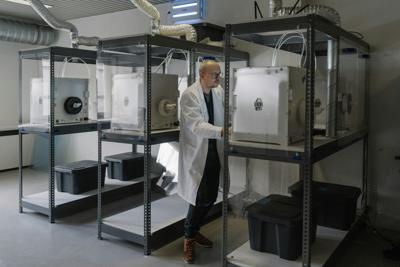Germany has become one of the world’s leading destinations for advanced cancer care, offering cutting-edge therapies, world-class hospitals, and personalized treatment approaches for international patients. From immunotherapy breakthroughs to highly targeted interventional oncology, Germany’s medical landscape combines precision, innovation, and access, making it a top choice for those seeking life-extending or life-saving options abroad.
This guide will walk you through the latest cancer treatments available in Germany, who they’re for, how to access them as a medical traveler, and what to expect in terms of costs, outcomes, and logistics.
Why Germany for Cancer Treatment?
Over 1,600 hospitals, including more than 60 specialized cancer centers certified by the German Cancer Society (DKG).
More than €2 billion annually is invested in cancer research and oncology innovation.
Germany ranks #1 in Europe for hospital infrastructure and #2 globally in healthcare access and quality (HAQ Index).
One of the highest survival rates in Europe for several cancers, including breast (89%), prostate (92%), and colorectal (66%).
Whether you are seeking second-line options, experimental therapies, or minimally invasive tumor control techniques, Germany offers access to a range of modern treatments, many of which are unavailable or restricted in other countries.
Breakthrough Cancer Therapies Offered in Germany
German oncology centers are known for integrating evidence-based innovations into patient care, often years before other healthcare systems adopt them. Below are some of the most advanced and promising therapies available in Germany today:
Dendritic Cell Therapy (DCT)
Dendritic cell therapy is a type of personalized immunotherapy that stimulates the patient’s immune system to attack tumor cells. The patient’s own dendritic cells are collected, trained to recognize tumor antigens, and reinjected to boost the immune response.
Indications: Metastatic melanoma, prostate cancer, colorectal cancer, pancreatic cancer
Success rate: Studies report partial or complete tumor regression in 30–50% of patients who previously failed standard treatments.
Centers: Leading institutes in Cologne, Frankfurt, and Munich offer DCT as part of multimodal treatment strategies.
A 2023 clinical follow-up published in Immunotherapy Reports showed a 47% progression-free survival at 12 months for late-stage pancreatic cancer patients treated with DCT in Germany.
Transarterial Chemoembolization (TACE) & TPCE
These are minimally invasive interventional radiology techniques used to treat inoperable liver and lung tumors by injecting chemotherapy directly into the tumor’s blood supply, followed by embolization to block nutrient flow.
Indications: Hepatocellular carcinoma (HCC), colorectal liver metastases, lung metastases
Procedure length: 30–60 minutes, typically done under local anesthesia
Outcome: Studies from Frankfurt and Dresden report tumor shrinkage in 70–82% of patients, especially when combined with systemic therapy or immunotherapy
Patients typically require 2-4 sessions, with recovery periods of just 1-2 days, making it an excellent option for medical travelers.
Peptide Receptor Radionuclide Therapy (PRRT)
PRRT is a targeted therapy using radiolabeled peptides (e.g., Lutetium-177 DOTATATE or Actinium 225) to deliver radiation to neuroendocrine tumor cells.
Indications: Advanced prostate cancer treatment; Neuroendocrine tumors (NETs) of the pancreas, lungs, and GI tract.
Success Rates: Over 70% disease stabilization or partial remission in advanced NET patients; Significantly improved progression-free survival (PFS) - median PFS of 29 months vs. 8 months with standard therapy.
Where It’s Offered: Hospitals in Essen, Berlin, and Munich; German Cancer Research Center (DKFZ) collaborates on new radiopharmaceutical developments.
Regional Chemotherapy (RCT) - Isolated Hypoxic Abdominal Perfusion (HAP)
This specialized technique, available at Medias Klinikum in Burghausen, delivers high-dose chemotherapy directly to the abdominal region under low-oxygen (hypoxic) conditions. The procedure maximizes the drug effect on tumors while minimizing systemic side effects through chemofiltration, making it ideal for patients with advanced ovarian, colon, gastric, or pancreatic cancers resistant to standard therapies. Clinical data shows tumor control in over 60% of patients and median survival exceeding 14 months in heavily pretreated cases. This therapy, coordinated via Airomedical, is offered as a complete medical travel package - including evaluation, inpatient care, translator support, and airport transfers.
Final Words
Germany offers a wide range of innovative cancer therapies - from immunotherapy and proton therapy to advanced regional chemotherapy techniques like Isolated Hypoxic Abdominal Perfusion. Accessing these cutting-edge treatments abroad can be complex, but platforms like Airomedical simplify the process by providing transparent clinic profiles, verified doctor credentials, cost estimates, and personalized support. If you’re considering medical travel for cancer treatment, using a trusted search and booking solution is essential to find a clinic and treatment tailored to your needs. Start your journey today with Airomedical - explore top hospitals, compare therapies, request expert second opinions, and organize your trip with confidence.











